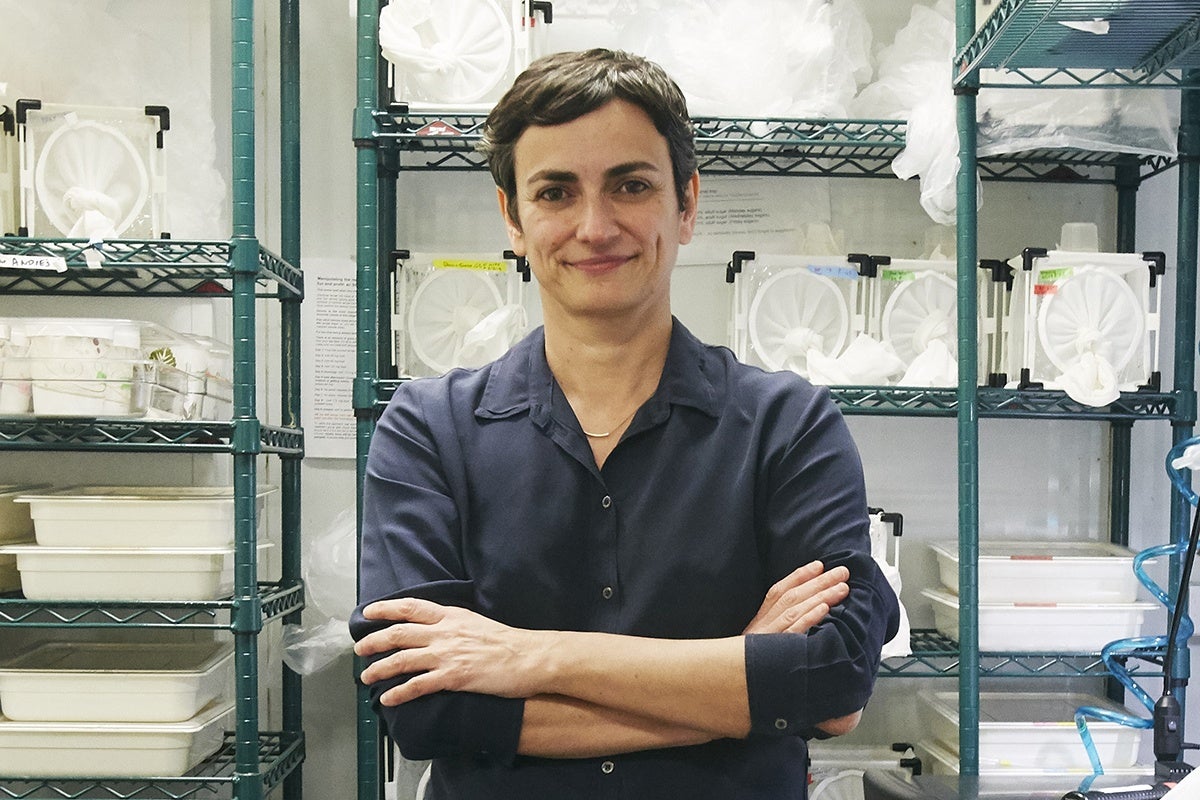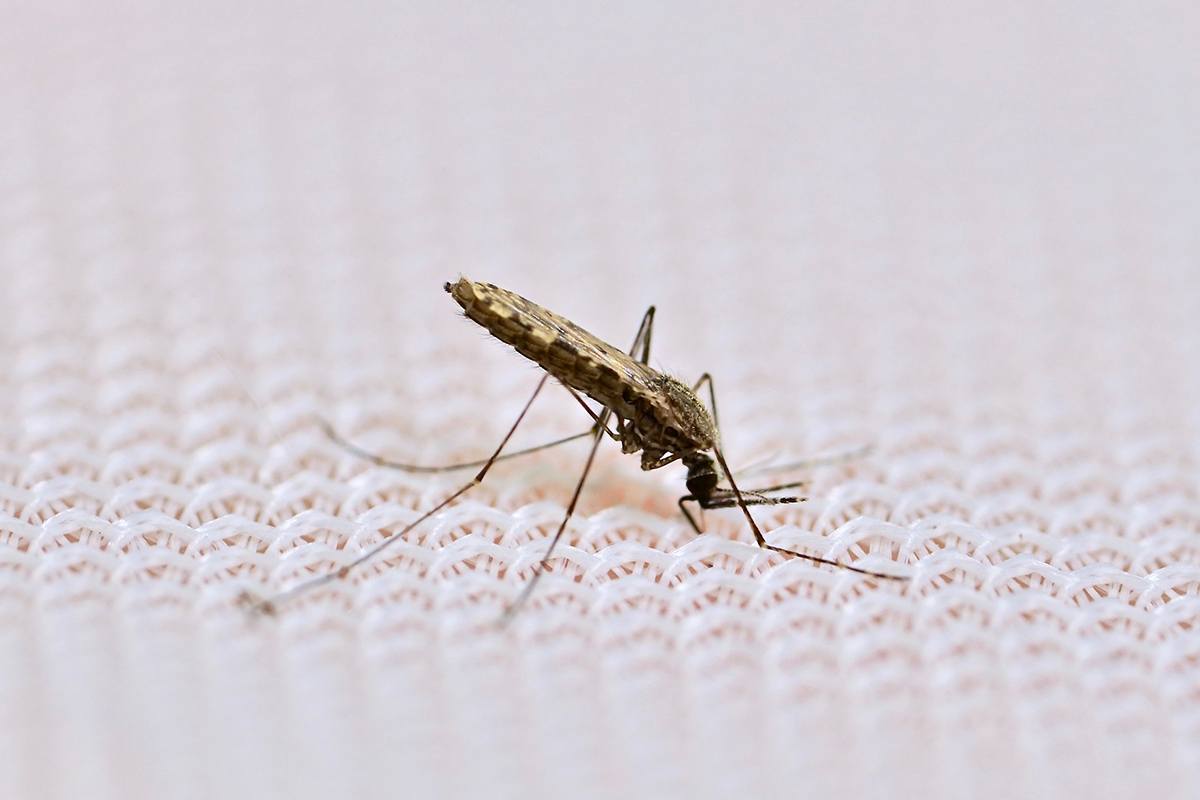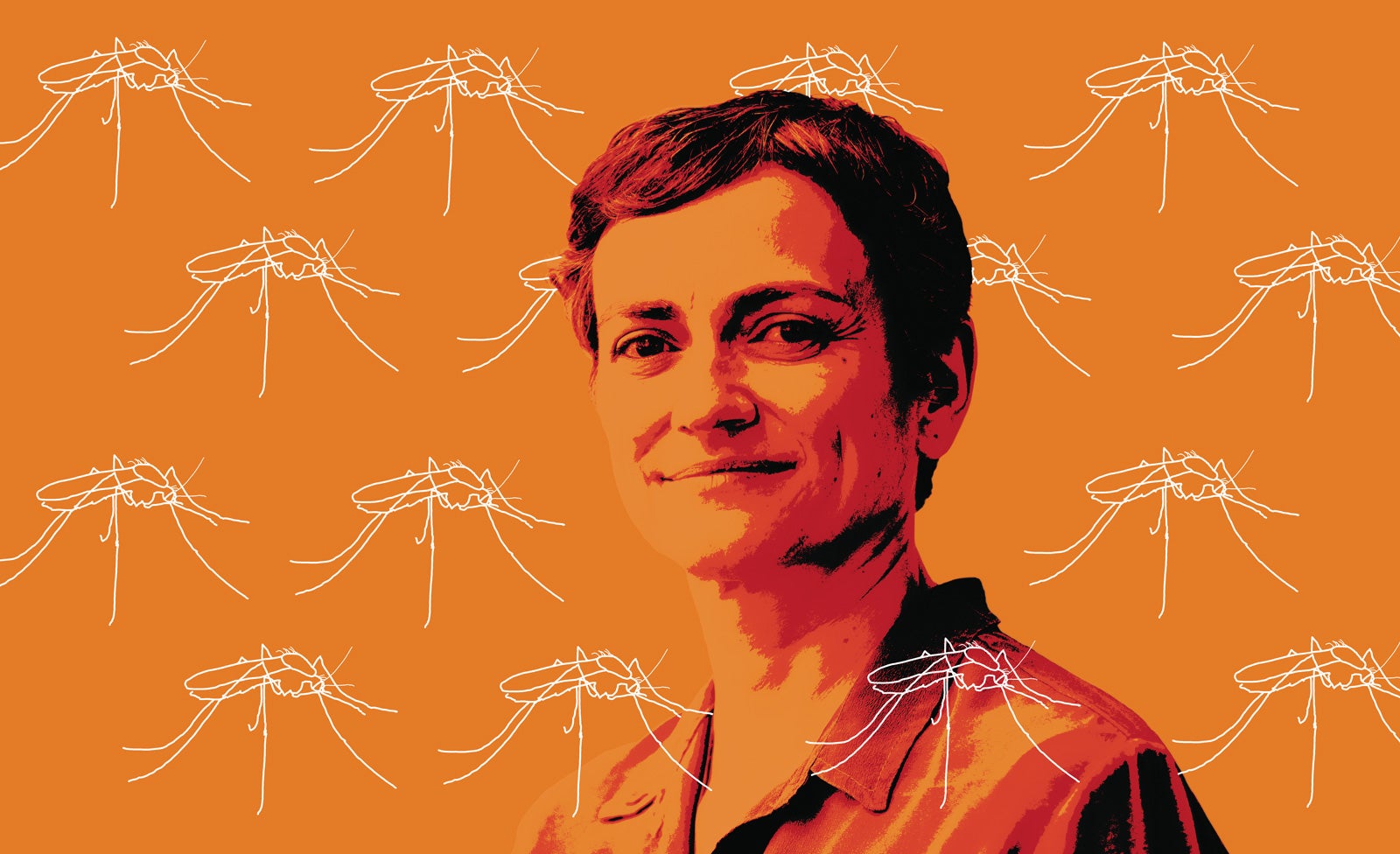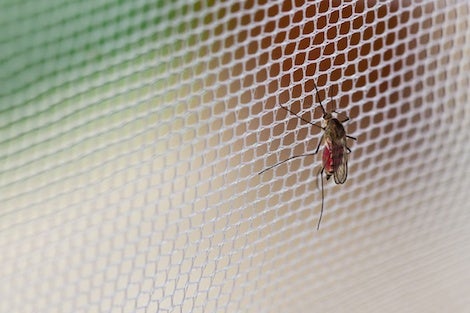Malaria deaths, once declining, have stalled, but there’s reason for hope
Infectious disease researcher Flaminia Catteruccia, who explores novel eradication methods in her lab and in the field, remains optimistic about defeating the notoriously complex disease.

Flaminia Catteruccia elected member of National Academy of Sciences
Flaminia Catteruccia, professor of immunology and infectious diseases at Harvard Chan School, has been elected as a member of the National Academy of Sciences.

Flaminia Catteruccia named Howard Hughes Medical Institute investigator
The Howard Hughes Medical Institute (HHMI) has named Flaminia Catteruccia, professor of immunology and infectious diseases at Harvard Chan School, as one of 33 new HHMI investigators.

Multiple blood meals for mosquitoes can speed development of malaria-causing parasites
An additional feeding on human blood by a mosquito infected with Plasmodium falciparum, the parasite that causes malaria, can accelerate the development of the parasite and increase the potential for transmission to humans, according to new research led…
A tech-centric approach to reducing mosquito-borne diseases
Hyegi Chung, MPH ’18, and former Harvard Chan postdoc Evdoxia Kakani met with students to talk about their work at Verily—a subsidiary of Alphabet, the parent company of Google—on using a tech-centric approach to reduce mosquito-borne diseases.

A new approach to fighting malaria
New research offers a potential fresh approach to fighting malaria: directly target the parasite responsible for the disease.

Sex, Drugs & Mosquitoes
To stop malaria, Flaminia Catteruccia wants to medicate—not annihilate—the world’s mosquitoes.

Applying antimalarial drugs to bed nets could lead to drop in malaria transmission
Mosquitoes that landed on surfaces coated with antimalarial compound atovaquone were completely blocked from developing parasite that causes malaria.

New drugs, tools, innovations needed to rid world of malaria
New medicines to help counter drug resistance and tools like gene drive technologies to curb parasite transmission are among the innovations needed to rid the world of malaria, according to a new research agenda published as a special…
Free online course focuses on malaria eradication
An eight-part, self-paced online course featuring a multidisciplinary perspective on eradicating malaria—MalariaX: Defeating Malaria from the Genes to the Globe—debuted over the summer on the edX global learning platform. The course focuses on the scientific and technological underpinnings…